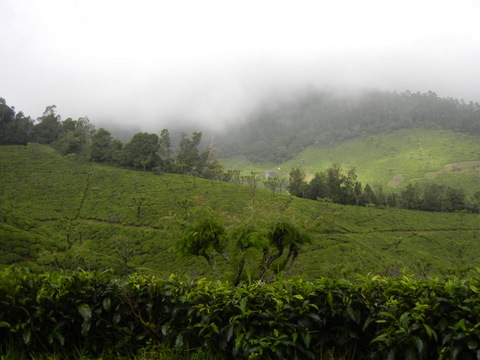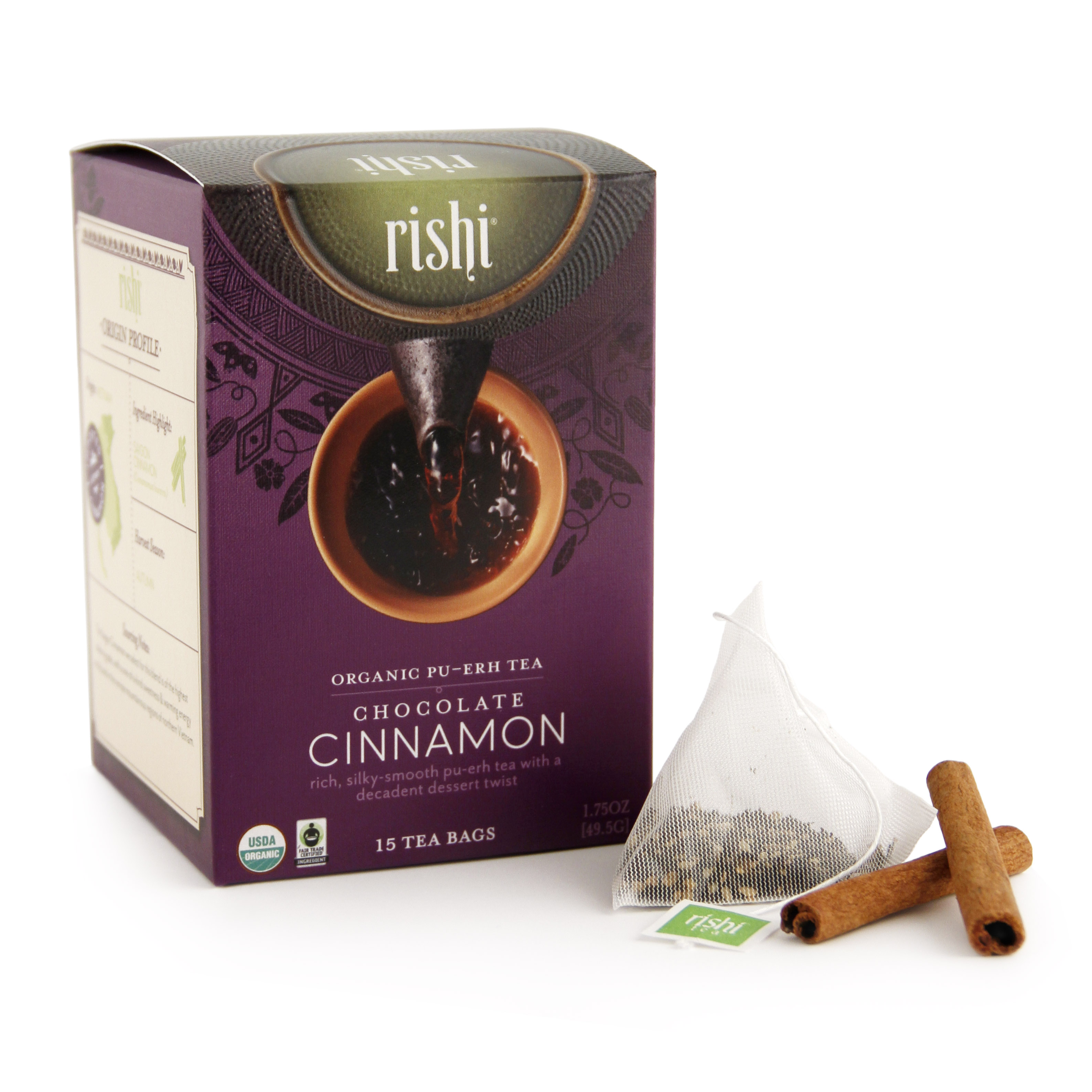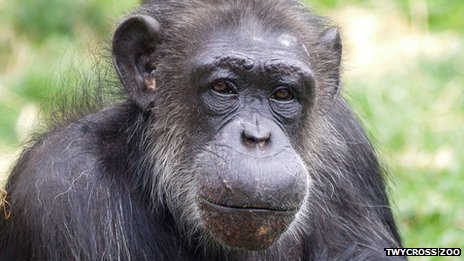What tea professionals need to start the week. —
Himalaya tea brand created to challenge Darjeeling… green tea interferes with a blood pressure drug… garden workers in Assam are pressing for a wage hike… there is a battle in Cornwall to see who will get creamed… Rishi Tea introduces a special knit mesh bag and a zoo regrets dressing Chimps for tea.
Himalaya brand challenges Darjeeling
DARJEELING, West Bengal, India – The 87 gardens here produce less than 10 million kilos annually while marketers last year sold an estimated 40 million kilos branded with the highly celebrated Darjeeling name.
If you are scratching your head over the math, it is possible because of the work of counterfeiters and due to tea blends that contain at least 51% Darjeeling tea. These blends continue to be legally marketed under the Darjeeling label for now, but all that is changing.

In November 2011 the European Union registered Darjeeling Tea as a Protected Geographical Indication (GPI) as it has done with Champagne made in a specific region of France and the whisky known as Scotch. Geographical indications are a useful intellectual property right for developing countries because of their potential to add value and promote rural socio-economic development. They are also an aid in exposing misuse and counterfeiting.
Notice that even if every kilo of Darjeeling’s annual yield was blended, only 19.8 million kilos could be genuine, leaving more counterfeit Darjeeling in circulation than is grown. Only 3 to 4 million kilos are exported mainly to Europe (60% of the export total) and Japan. The large quantity of suspect tea suggests counterfeiters are at work in both the domestic market and overseas.
Blenders that has sold the teas for the five years prior to the ruling are permitted to continue marketing the 51:49 mix as Darjeeling tea for five years ending in 2016. At that time only packets that contain 100% Darjeeling can legally carry the name.
Anticipating an end to this lucrative practice tea importers are trying to create a new brand called Himalayan Tea, according to reports in the The (Calcutta) Telegraph. The newspaper quoted the Darjeeling Tea Association’s Principal Advisor, Sandeep Mukherjee, as saying the importers “are using the words Himalayan Tea on packets in certain European countries to create a new brand so that they can carry on with the practice of blending various kinds of tea.”
“The use of Himalayan Tea is not rampant as of now but the usage has started,” he added.
Confusion over the purity of Darjeeling is being addressed in several ways. A seal is affixed to exports and counterfeit tea is confiscated. Ultimately the price is going to rise on scarcity and new demand. In November, South Korea, for the first time, imported 1,500 tonnes of Darjeeling tea according to the Economic Times. S.S. Bagaria, chairman of the Darjeeling Tea Association (DTA) said he was pleased at Korea’s interest in first flush and autumnal teas.
 Stable prices and rising demand have generated renewed interest in revitalizing the gardens of Darjeeling. The Mamata Banerjee government recently offered to sell three Darjeeling gardens to Bengal, Inc., a group that includes Jay Shree Tea, Ambootia Group, Bagaria Group and state-run Andrew Yule. The decision to privatize is expected to lead to new investment in Rungmook-Cedars, Rangaroon and Pandam gardens.
Stable prices and rising demand have generated renewed interest in revitalizing the gardens of Darjeeling. The Mamata Banerjee government recently offered to sell three Darjeeling gardens to Bengal, Inc., a group that includes Jay Shree Tea, Ambootia Group, Bagaria Group and state-run Andrew Yule. The decision to privatize is expected to lead to new investment in Rungmook-Cedars, Rangaroon and Pandam gardens.
Last week the Ringtong tea garden reopened after 17 years. The garden, located in the Sonada valley, was abandoned after militant workers burned the factory and ransacked the manager’s bungalow. A new factory is to be constructed. Ringtong is the last of the 87 gardens to reopen and is expected to be fully operational by 2019.
Tea quality suffered in 2013 due to heavy rains and workers disrupted shipments causing order cancellations early in the season.
Sources: Economic Times and The (Calcutta) Telegraph
Ill Effect of Green Tea on Blood Pressure Meds?
A report accepted this week for publication in the journal Clinical Pharmacology & Therapeutics suggests that consumption of green tea may impact the absorption of nadolol, a blood pressure medication.
Researchers from Europe and Japan developed the study after previous data indicated that rats who consumed green tea extract were less able to absorb this blood pressure medication. Ten volunteers were given either water or green tea each day of the two week study. They were then given a dose of the beta blocker nadolol. After a rest period of two weeks, the study was repeated with the volunteers switching to the opposite beverage.
Blood samples were taken to measure the concentration of the medication in the blood stream. When volunteers drank green tea, there was 76% less nadolol in the blood than when they consumed water. Nadolol was also found in significantly lower amounts in the urine. Researchers believe that this indicates that the medication was absorbed less in green tea drinkers.
Further lab analysis led researchers to believe that the antioxidant EGCG may be affecting the proteins that move the drug into the cells. Although the study was small, the results were concerning enough that they recommended abstaining from green tea consumption while taking this drug until further studies can be done.
 Rishi Tea Debuts a Special Knit-Mesh Tea Bag
Rishi Tea Debuts a Special Knit-Mesh Tea Bag
MILWAUKEE, Wis. – Paper and even fine mesh silky bag materials are too tightly woven and act as a barrier to the tealeaves’ infusion according to Rishi Tea which introduced a new filter mesh bag from plant-based resources.
Rishi Tea’s new tea bags are certified organic and Fair Trade certified and “set a new standard for gourmet quality in the tea bag market,” according to the company.
The filter bag imparts enhanced flavor, aroma and body over standard paper or silky/nylon tea bags, according to Founder and President Joshua Kaiser. “We found a looser weave structure was needed to improve the overall tea bag experience,” says Kaiser. “Our teas, blends and herbals carry with them the taste of origin. They also embody a culinary approach to tea so we were excited to have brought to market a specially designed knit material that actually allows for a full, true infusion of flavor and aroma without any of the sensory hindrances posed by paper or nylon mesh tea bags.”
“The design was inspired by the strainers inside of handheld Japanese tea pots called Kyusu. A kyusu has a fairly wide mesh at the base of the spout with ample room inside the pot for tea leaves to unfurl and yield a balanced, full infusion. Rishi’s tea bags offer that level of quality and honor the artisan methods we and the farmers we collaborate with take,” says Beau Bernstein, Rishi’s Director of Marketing. This new line offers a veritably epicurean approach to organic tea that the Specialty Tea market has been missing.”
Rishi’s new line of tea bags are available in 15 count boxes, and feature ingredients not seen anywhere else in the tea aisle, from South & South East Asian turmeric root to organic Bordeaux varietal grape skins. The 16 organic tea bag flavors (priced at $8.99) will be available at select retailers and specialty gourmet markets nationwide beginning in February.
Organic green teas: Jade Cloud, Jasmine Green, Tropical Green, Sencha, Green Tea Mint, Matcha Super Green. Black Teas: English Breakfast, Earl Grey, Masala Chai. Pu-erh teas: Pu-erh Bordeaux, Chocolate Cinnamon. Herbal Teas: Blueberry Hibiscus, Pacific Peppermint, Chamomile Medley, Turmeric Ginger. White Tea: Peach Nectar
Marketers Focus on Adding Value
Tea marketers are exploring added value products in the relatively static world tea market that will undergo significant retail and foodservices changes, according to a report by Research and Markets.
Tea marketers including Unilever (T2) and Starbucks (Teavana) have both acquired premium tea specialist retail outlets, and growth in premium tea consumption is seemingly around the corner, according to researchers.
 “Nestlé’s bold move in creating Tpresso using a Special. T. brewer, now available in Japan, “is being closely observed by its rivals,” according to the report. The capsule system launched in retail outlets in September.
“Nestlé’s bold move in creating Tpresso using a Special. T. brewer, now available in Japan, “is being closely observed by its rivals,” according to the report. The capsule system launched in retail outlets in September.
“Japan is an important tea market with a lot of potential,” said Pascal Lebailly, Nestlé’s Head of Special.T. “Per capita consumption is up to five times higher than in any western European country, apart from the United Kingdom. “Although Japan has a strong green tea drinking culture, other varieties such as black, blue, white, flavored, or organic herbal are less well known,” he continued.
“There is certainly a business opportunity for another single beverage tea system in the market,” according to researchers.
The report suggests the market in retail and food service is set to change. The global briefing offers an insight into the size and shape of the hot drinks market, highlights buzz topics, emerging geographies, categories and trends as well as pressing industry issues and white spaces. It also identifies the leading companies and brands and offers strategic analysis of key factors influencing the market including new product developments, packaging innovations, economic/lifestyle influences, distribution and pricing issues.
Learn more: Tea Global Corporate Strategy: Adding the Value and Creating the Demand (Jan. 2 2014)
Clotted Cream Wars
 CORNWALL, England – What is the true goal of a Protected Designations of Origin (PDO)? Is it to maintain and protect the long heritage and tradition of a product or can it also be a growing and evolving definition, one that reflects changes to a product over time? These are some of the questions emerging from a corporate battle over Cornish clotted cream.
CORNWALL, England – What is the true goal of a Protected Designations of Origin (PDO)? Is it to maintain and protect the long heritage and tradition of a product or can it also be a growing and evolving definition, one that reflects changes to a product over time? These are some of the questions emerging from a corporate battle over Cornish clotted cream.
Cornish clotted cream is a thick cow’s milk-based cream produced in Cornwall, England with a warm yellow color and a golden crust on top that is well-known by afternoon tea aficionados. Cornwall’s grass is rich in carotene and has a long growing season, allowing the cows that graze on it to produce milk that is extremely high in butterfat and has a distinctive color. In 1998, the PDO was granted for clotted cream produced in Cornwall, using Cornish milk, with a fat content of at least 55%, and created using a specifically designated process. Last month a filing was made by Trewithen Dairy suggesting that the definitions are outdated and that clotted cream sold in bulk to manufacture other products should be allowed a more flexible definition.
Trewithen wishes to continue to produce a Cornish clotted cream for bulk sales in which the crust is actually mixed into the product rather than on the top. Their biggest rival, Rodda’s, argues that this change would go against the very spirit of a PDO designation. Rodda’s managing director, Nicholas Rodda, was quoted in The Independent saying, “The role of PDO is to protect the traditional foods. Changing it undermines the whole reason for its existence.”
Comments will be collected by the Department for Environment, Food and Rural Affairs (DEFRA) about the proposed changes until March 2014 with a ruling to follow.
India Tea Laborers Seeking Wage Increase
WEST BENGAL, India – Garden workers are again pressing for a wage hike in India which often leads to showdowns that disrupt supplies. Currently workers earn INRs 95 ($1.57 a day) for plucking 42 kilos of tea. They are asking for INRs 322 ($5.18) under a three-year agreement that expires April 1. India requires garden owners to provide workers with shelter, subsidized grains for their table, medical care and education for their children in addition to a daily wage.
Several unions asked to meet with representatives of garden owners. Unions include the Darjeeling Terai Dooars Plantation Labour Union, which is affiliated to the Gorkha Janmukti Morcha, and the Progressive Tea Workers Union of the Akhil Bharatiya Adivasi Vikas Parishad. These and several smaller unions announced they had formed a coalition Dec. 27 and met with West Bengal Labour Minister Purnendu Bose in Calcutta on Jan. 7, according to reports in the The (Calcutta) Telegraph. The coalition is called the United Tea Workers Front (UTWF). Since the last negotiations the Supreme Court of India has issued wage guidelines and the 15th Indian Labour Conference (ILC) recommended a base of INRs 322 per day.
The UTWF asked Purnendu to initiate talks prior to the expiration of the existing work agreement. The union is seeking wages sufficient “for living a healthy life.”
Gardens in the Terai are situated south of the outer foothills of the Himalaya and north of the Brahmaputra Valley and its tributaries. Terai is the Hindi word for foothills. It is home to 10.3 million people. The tea growing region is crossed by the Ganges and Yamuna and Karnali and hundreds of smaller rivers. The Dooars, which means “door” in Assamese are the floodplains of the eastern Himalayas. The Dooars span 3,400 square miles.
A representative of the Terai Indian Planters’ Association, whose members have gardens in the Terai, told the newspaper that growers are also eager to begin talks but are waiting for state officials to set a date and location. Growers point out that wages have increased 34% since 2011.
Coalition spokesman Anuradha Talwar told the newspaper “we want the state government to immediately initiate talks on the revision of pay for the next three years. Only if the talks are launched soon, the laborers can start receiving wages at higher rates from April 1 and it can be ensured that there are no arrears. There were instances of workers being deprived of new wages from the date of the (earlier) revision because of delay in reaching an agreement.”
Workers want talks held in Darjeeling for unions representing gardens in that region with additional talks in Siliguri for workers in the Terai and Dooars instead of Calcutta.
Other unions in the coalition include Terai Dooars Progressive Plantation Workers Union, West Bengal Tea Labour Union (which is affiliated to the CPI-ML), Paschimbanga Khet Mazdoor Samiti and New Trade Union Initiative. The Citu and Intuc and RSP Union are not part of the group, nor are the two Trinamul tea unions, but these represent relatively few of the region’s several hundred thousand tea workers.
Source: The (Calcutta) Telegraph and The Business Standard.

Zoo Regrets Tea Service
LONDON, England – Twycross Zoo has apologized for allowing PG Tips to feature a pair of talking chimps in its tea commercials for 50 years.
The zoo in Leicestershire, now known as the World Primate Center, said there will be no more chimps used in advertisements and has since remodeled its habitat to more closely resemble the wild.
In the ads the chimpanzees were dressed in clothes and hats and lip-synced with the voices of actors such as Peter Sellers and Bob Monkhouse. Their antics were on display at the zoo as well. Animal rights groups protested and the ads were halted in 1970, reappeared 18 months later and were finally abandoned in 2003.
The zoo told the BBC that performing alienated the animals from their kind. The surviving chimp, known as Choppers played Ada in the commercials. She is now 42 years old and never learned to assimilate with fellow apes.
Her insularity and unwillingness to integrate with other chimps was caused by the close bonds she formed with people, according to Sharon Redrobe, Twycross Zoo’s chief executive. “She’s mixed up,” Redrobe told the BBC.
“It’s not a good start in life to be treated like a human because they don’t learn ape behavior and are not very good at being with other chimps,” she said, “they want to be with people.”
“You can’t deny the past – it happened,” said Redrobe. ”It absolutely wouldn’t happen again under my leadership.”
Source: BBC
— — —
Tea Biz serves a core audience of beverage professionals in the belief that insightful journalism informs business decision making. Tea Biz reports what matters along the entire supply chain, emphasizing trustworthy sources and sound market research while discarding fluff and ignoring puffery.
Tea Biz posts are available to use in your company newsletter or website. Purchase reprint and distribution rights for single articles or commission original content. Click here for details.


